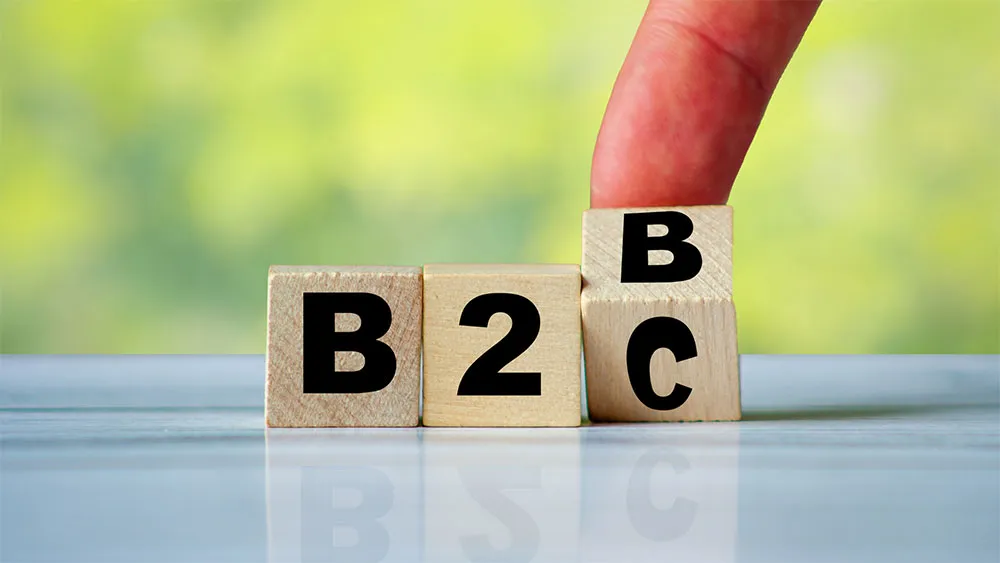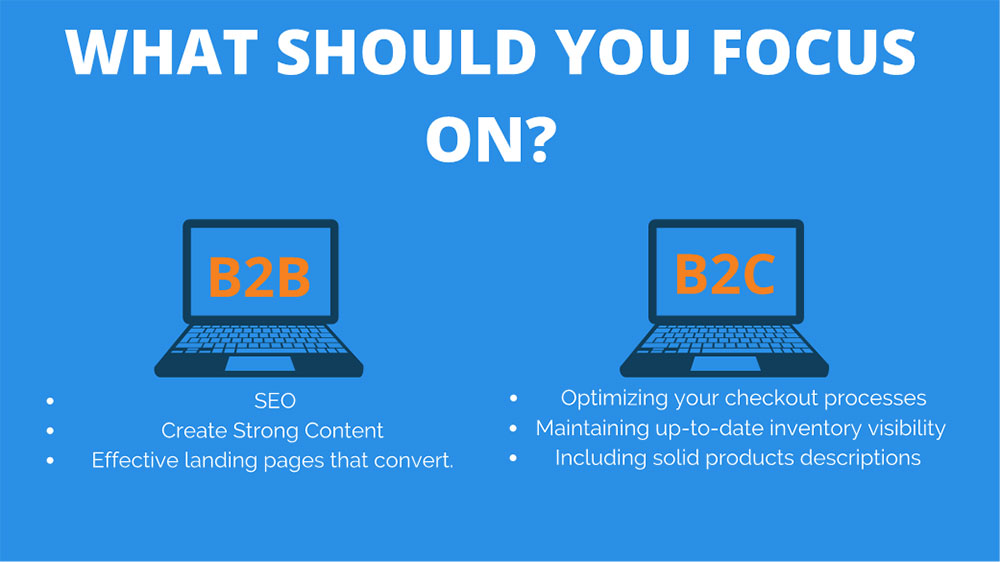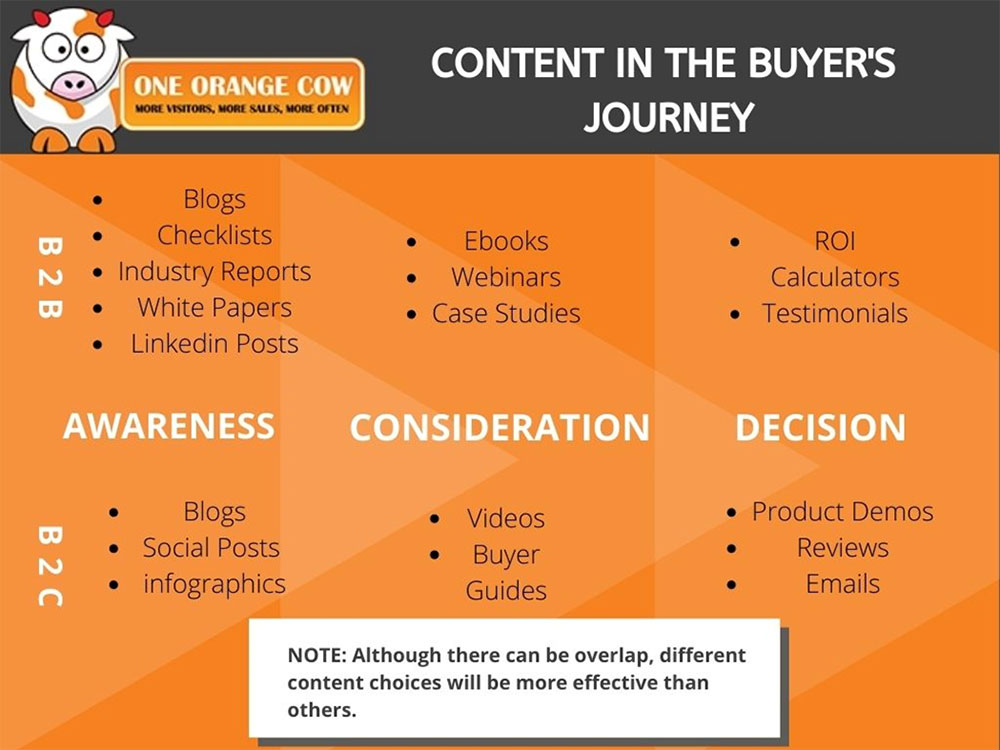How Your Business Model Should Dictate Your Marketing Efforts (B2B and B2C)
By Bruce Klaic Monday, October 18, 2021

Based on your business model, your approach to Inbound Marketing will differ.
Sure, the methodology and the Buyers journey are similar but the content, timeline to sale and how you utilise your channels will differ.
For a great Summary of the Buyer’s Journey click here.
What’s the major difference?
B2B sells goods or services to other businesses whilst B2C sells them directly to a consumer. It is a simple distinction, but this fact will permeate through every aspect of your business from your Sales and Content to Web design.
For example, A good B2B website focuses on qualifying and Generating Leads through strong Lead Magnets and effective CTA’s. While a good B2C website is focused on sales, so it should be a priority to have making a purchase be as simple as possible.

How Content Differs
As you may have heard the not-so-old adage “content is king”
Whatever you look at: a Blog Post, Infographic, a Tik-Tok Dance; it is Content. But not all content and the channels you put them on are created equal.
A successful inbound marketing campaign relies on strong, timely and relevant content delivered at different stages of the Buyers Journey.
B2C
Let’s say one day, you are scrolling through your Instagram when an Ad for a coffee mug that says “Udderly Delicious” on it appears. Now the next logical question you may ask yourself after “where’s my card?” and “do they have same day delivery?” Might be do I need it? But if you share a love of bovine based puns like me your answer is going to be “Yes, yes I do.” And that might be it! The whole buyers journey completed from one targeted ad on Instagram.
Wouldn’t it be great if all sales were that easy? For B2C businesses sometimes, it can be, because B2C businesses have the benefit of Impulse Purchasing the buyer’s cycle can be short, they don’t need as much information before purchasing so the journey to the conversion is usually swifter.
A general consumer does not need to check with relevant stakeholders to advise on purchasing decisions, they may want to buy right then and there and are motivated by emotion, feeling good and convenience fun and entertaining content will work well here.
B2B
On the other hand, if you saw an ad on Instagram pop-up for an
“A” series Fixed Height Gantry Crane” (without being too specific) you wouldn’t just go reaching for the company credit card now, would you? You might even think “that’s a bit weird” (even if you do need 6 for the new warehouse.)
It’s true that not all B2B businesses sell expensive factory equipment but if your customer did decide to go ahead and buy… on a whim, could they? Or would you need to get approval? show the proposal to relevant stakeholders? calculate their ROI?
Customers in the B2B realm want to know how you can help them achieve their goals, make them more efficient, save money, grow. They are motivated by Data, logic and financial incentive. They are not just buying but doing business with you: a possible long-term partner that could be working with them for years to come.
Content must be informative and educational so you can establish yourself as a thought leader in your industry and build trust.

What is a Buyers Persona?
Without understanding your customers pain points, goals, likes, dislikes etc. your content will always fall short. Let the customer tell you what kind of content they like and how they like to consume it by creating well researched Buyer Personas.
Buyer personas are fictional, generalized representations of your ideal customers. They help you understand your customers (and prospective customers) better and make it easier for you to tailor content to the specific needs, behaviours, and concerns of different groups.
The strongest buyer personas are based on market research as well as on insights you gather from your actual customer base (through surveys, interviews, etc.). Depending on your business, you could have as few as one or two personas, or as many as 10 or 20. (Note: If you’re new to personas, start small! You can always develop more personas later if needed.)
If I asked you what type of format does your customer prefer? What time of day are they most likely to respond to an email? What device do they like to do their shopping on, would you know?
It's important to establish buyer personas for your business so you can segment your audience and create stronger marketing campaigns. But how do you start researching and creating these personas from scratch?
Our FREE, customizable buyer persona eBook will let you easily organize your research to create your very own buyer personas.
Click Below to Download your copy now!